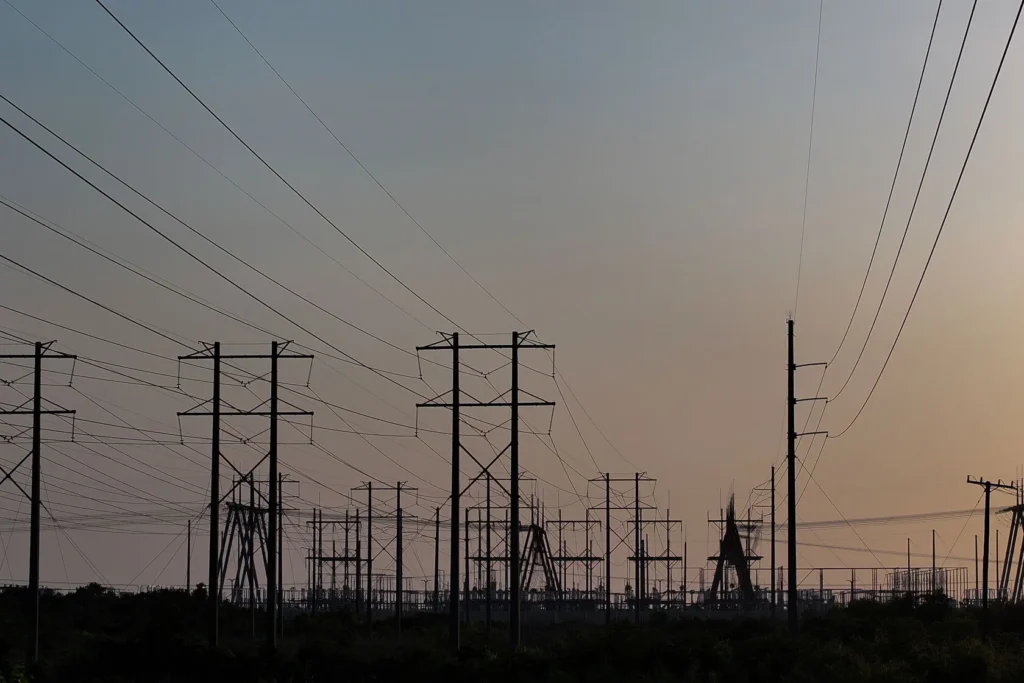President Donald Trump has signed into law the One Big Beautiful Bill Act (OBBBA), which he has been demanding for months, after Congress officially passed the bill on July 3, 2025. Not only will the OBBBA’s cuts to health care and food assistance programs increase poverty, hunger, and costs for millions of Americans, but the bill also kills clean energy incentives and further subsidizes the oil and gas industry, resulting in even higher costs and health burdens for American families. The OBBBA will gut pollution-reduction programs, worsening air quality and public health, while putting Americans at greater risk from a less reliable power grid as extreme weather rises. From an energy and environment perspective, this column explains how the OBBBA will affect Americans’ wallets, health, and safety.
The OBBBA will hurt Americans’ wallets
America was on track to add a lot more energy to the grid through the rapid growth of the clean energy industry. However, the OBBBA rolls back clean energy tax credits that energy developers were relying on to make that growth happen. Without these incentives, many clean energy projects will get cancelled and leave the U.S. with less energy than it needs in a time of rising energy demand. The Trump administration and Congress are attempting to offset this reduction of electricity supply with more fossil fuel development. However, relying more on fossil fuels for electricity will only end up raising consumer costs due to their higher operating and maintenance costs compared with clean energy.
The OBBBA would increase average annual electricity costs by $110 per household as early as next year, with some states seeing more than $200 increases annually.
By reducing the generation of the affordable clean energy added to the grid, the bill will leave Americans with higher energy bills. The OBBBA would increase average annual electricity costs by $110 per household as early as next year, with some states seeing more than $200 increases annually. Businesses also face increased costs of nearly 10 percent by 2026, and these additional costs would likely be passed on to consumers. On top of electricity costs, this bill would raise gasoline prices by between 25 cents to 37 cents per gallon by 2035, meaning that Americans will pay the oil industry an additional $339 billion in gasoline revenues by 2035.
The OBBBA will have negative impacts on Americans’ health
The OBBBA recklessly repeals lifesaving incentives for weather resilience, energy efficiency, and improved air quality in American communities. Baked into the OBBBA are cuts to the Inflation Reduction Act’s federally funded initiatives, such as air pollution monitoring, cleaning up ports, home energy efficiency upgrades, and emissions-free school buses.
Increases in local air pollution as a result of the OBBBA will likely lead to 430 avoidable deaths every year by 2030 and 930 by 2035.
By tossing these programs aside and gutting the clean energy incentives, the federal government will deepen the nation’s reliance on fossil fuels and increase pollution associated with fossil fuels in communities. Fossil fuel emissions include planet-warming carbon dioxide, as well as cancer- and asthma-inducing particulate matter, nitrogen oxides, and sulfur oxides. In just five years, these harmful emissions will increase by 160 million metric tons of carbon dioxide equivalent—equal to cutting down more than 2.6 billion new trees grown in urban and suburban areas Increases in local air pollution as a result of the OBBBA will likely lead to 430 avoidable deaths every year by 2030 and 930 by 2035. Fossil-fueled air pollution already costs each American an average of $2,500 per year in extra medical bills. On top of the bill’s cuts to Medicaid—which will leave millions of Americans uninsured and create thousands of dollars in additional out-of-pocket health care costs—the OBBBA’s repeal of emissions-reducing incentives only increases the threat level and strain of air pollution on Americans’ public health.
Some of these harms will be irreversible and will haunt Americans for years to come.
The OBBBA risks Americans’ personal safety
The OBBBA will reduce overall energy additions to the grid by at least 50 percent and comes at a time when the U.S. electric grid is already under stress from skyrocketing electricity demand and rising extreme weather events. Congressional Republicans’ budget bill would remove enough clean energy supply from the grid to power 90 percent of homes in the United States.*
In June, a life-threatening heat wave swept through parts of the country, resulting in blackouts in several states, leaving approximately 80,000 people without power and a way to stay cool at home and demonstrating the need for more reliable energy generation. Extreme weather events are the leading cause of electric power outages. More Americans face weather-related power outages and, as a result, are at risk for numerous health concerns including gastrointestinal illness and heart attacks. The failure to add new energy sources such as wind and solar to the grid quickly and affordably can expose more Americans to unsafe conditions during times of high energy demand or extreme weather events that are becoming increasingly common due to climate change.
310M Metric tons of additional carbon dioxide equivalent that will result from the OBBBA by 2035.
The provisions repealed and rolled-back from the Inflation Reduction Act in the OBBBA were designed to help the United States get on a track to meet pollution-reduction targets to prevent the worst impacts of climate change. Now, the consequences of the OBBBA will increase greenhouse gas emissions by nearly 310 million metric tons of carbon dioxide equivalent in 2035, increasing risks associated with climate change such as wildfires and hurricanes. From worker safety in extreme heat, to rising rates of preventable injuries and violence due to climate change, to the increasing severity of threats to the electric grid, the setbacks that the OBBBA will enshrine for the climate risks Americans’ safety and livelihoods.
Conclusion
That the One Big Beautiful Bill Act increases costs and hurts U.S. businesses and jobs is bad enough, but the act also increases pollution and threatens the safety of Americans in a changing climate. And why? To give more money to the ultra-wealthy and corporations, including roughly $15 billion in tax breaks for the fossil fuel industry. Congressional Republicans’ bill will have ugly consequences that will take years to reverse. Some of these harms will be irreversible and will haunt Americans for years to come.
Lucero Marquez and Jasia Smith
source: Center for American Progress




